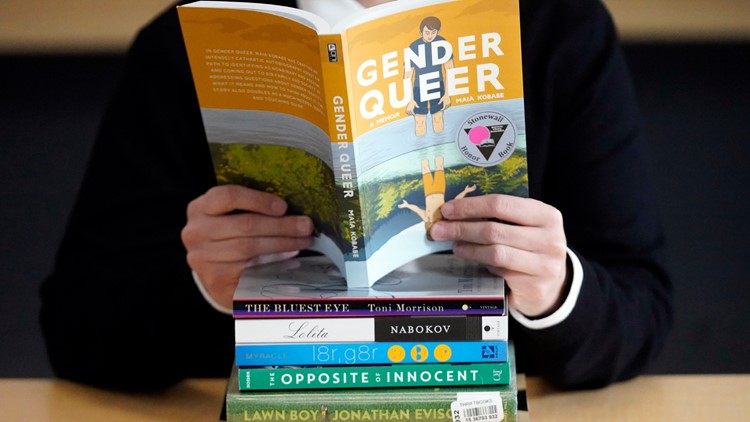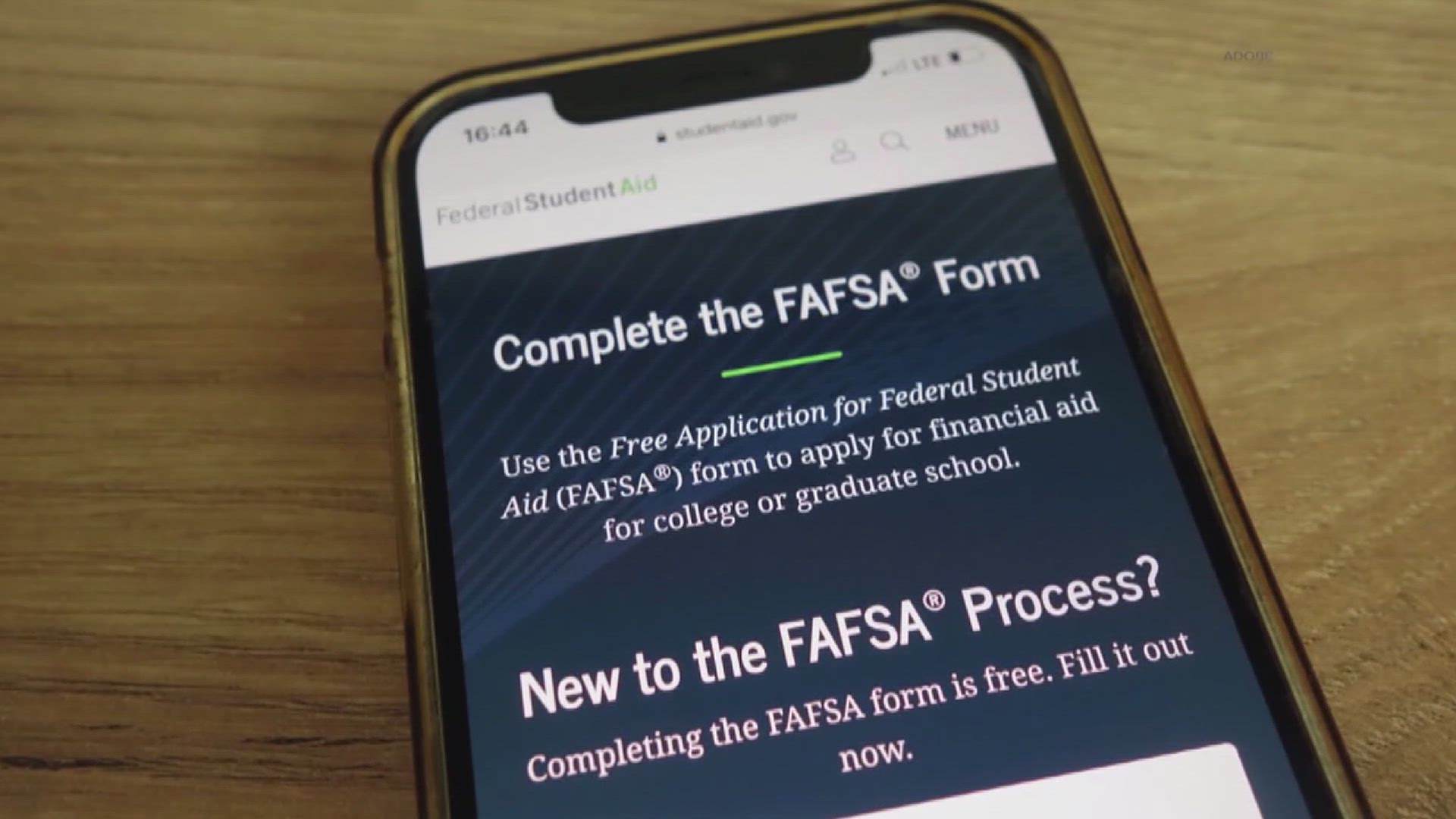SPRINGFIELD, Ill. — A national controversy is emerging about the practice of banning books, especially in school classrooms and libraries, as a primarily-conservative movement pressuring institutions to remove books containing certain politically-charged themes and content creates record-high book ban attempts.
The issue surrounds the availability of books containing certain themes that challengers consider to be inappropriate to children, including racial, sexual and LGBTQ+ topics — all of which are politically divisive in a world facing challenges in racial discrimination and LGTBQ+ rights.
The argument centers around age-appropriateness, with many book challengers arguing that "inappropriate" content, especially sexual content, should not be available for minors outside of purely academic contexts and that parents should have control over what education is provided to their kids.
“The parents are the governing authority in how their child is educated, period,” said Iowa State Sen. Amy Sinclair, R-Wayne. “Parents are responsible for their child’s upbringing, period.”
Critics argue that the argument of appropriateness is often vague, promotes censorship, chills racial and LGBTQ+ ideas, mischaracterizes the content of many books, and paints a false view of what kind of content is promoted to younger age groups.
“A kindergartner is not wandering into the young adult's section and picking out a book that is called like, “This Book is Gay,” said Hayden Parris, a leader of a parents group opposed to Iowa’s proposed law, in a statement to the Associated Press. “They’re not picking those books, and the fact that they can pick one out of several thousand books is not a reason to keep it away from everyone.”
Sometimes the books are directly challenged on these themes, but more general concerns like curse language can also be used to single them out.
The State of Illinois became a national pioneer on the issue on Wednesday, March 22, when a first-in-the-nation book ban prohibition bill, HB 2789, passed in the Democrat-dominated Illinois House.
If adopted, House Bill 2789 would allow the state to revoke grants for public and school libraries that don't develop a policy against the banning of books or other reading material due to "partisan or doctrinal pressure." The bill was quickly met with Republican opposition on the grounds of taking power away from local-level institutions.
The bill has a simple goal — letting schoolchildren have access to more books and information, and resisting the historically-decried practice of book bans.
“Banning books is the sort of behavior that was once, for good reason, associated with the worst, most repressive and repugnant authoritarian regimes of the mid-20th century and before,” the bill’s lead sponsor Rep. Anne Stava-Murray, D-Naperville, said during debate on the House floor. “The fact that this is even up for discussion in America in the 21st century is disgusting. And yet, just last year in my district, that discussion was spurred on by a few radical parents and the Proud Boys hate group over a book called ‘Gender Queer.’”
It's a move that directly targets controversial book challenges made famous in states like Florida, Texas, Missouri and the neighboring state of Iowa.
Some of the legislation, such as one Missouri law, directly outlaws school libraries from providing books containing "explicit sexual material" outside of traditional academic functions, which was challenged by the ACLU on grounds of First Amendment concerns, due process rights and the impact it had on librarians widely-removing books that could even potentially be classified as criminal, many of which are written by or about racial, sexuality or gender minorities.
Other bills are less direct, like an Iowa bill that aims to create "transparency" in school curriculums and library stocks — giving parents full access to a list of available books and a process to challenge selections. Parental rights and school choice have been a priority for Iowa Gov. Kim Reynolds, who made the issue a cornerstone of her administration with the support of the Republican-dominated legislature.
Bills like these have led to campaigns by individual parents or organized groups to rally book challenges to school districts or state governments, like in a Feb. 6 hearing in Iowa where a group of five moms from the conservative Moms for Liberty group rallied against books like "Gender Queer" and "Fun Home," two books recounting stories of discovering LGBTQ+ identity and coming of age.
Gov. Reynolds's education bill, Senate File 496, passed the Iowa Senate on March 22 and, alongside other anti-trans measures and prevention of students learning about gender identity, sexuality and HPV, the world's most common sexually transmitted infection, it contains three measures that work together to constrain the availability of books.
First, the bill requires every school district to publish online lists of all materials used in classes, employees in contact with students, and books in classrooms and libraries for parents to see. Districts would be required to update this list two times a semester or at the start of each trimester.
Second, the bill would require school districts to have a detailed process available for parents to request the removal of any material.
Thirdly, any book removed from a school would be put on a statewide "removal list" maintained by the Iowa Department of Education The list would be published online, update every month and list the school districts that have removed the book from their property. A school district must receive written permission from a parent before allowing a student to check out or access any book on that list.
This list would apply statewide — meaning that it affects all Iowa schools, even if they haven't banned the book. This means that if a book is banned in just one school, it is restricted in all schools.
Depending on how the bill's required processes are implemented in each individual school district, the complaint of a single parent could potentially result in a book being blocked from almost every schoolchild in Iowa.
It's also possible that the list of all employees in contact with schoolchildren could lead to the harassment of specific workers, especially publically out LGBTQ+ educators, by outside groups.
Given the book ban movement's common targeting of literature about racial issues and LGBTQ+ identity, the book ban measures alongside Iowa's other educational changes threaten to make the voices of many minorities much harder to hear in Iowa schools.
Iowa's Senate File 496 awaits passage by the House of Representatives before it can be sent to Gov. Reynold's desk for final approval. Illinois's House Bill 2789 resides in the Senate.
Watch more news, weather and sports on News 8's YouTube channel



